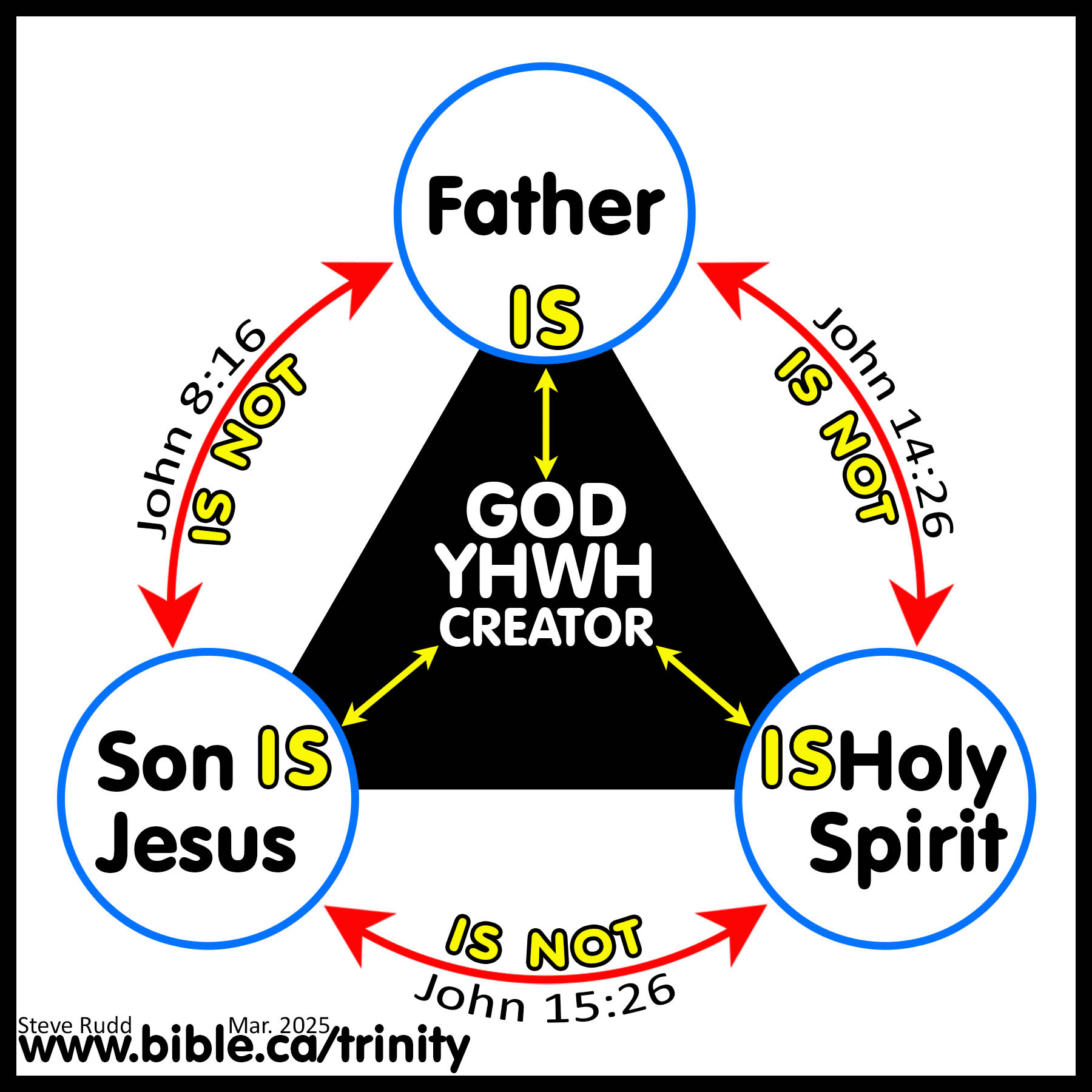[QUOTE="mindstorm"]Yes but Mormonism excludes Jesus from this picture. It was the Word of God Jesus Christ who humbled himself to the form of a servant (John 1, Philippians 2, etc.) as you say, not God the Father as Mormons say. According to every orthodox Christian tradition (Protestants, Catholics, Eastern Orthodox, etc.) the only physical manifestation of the Father is the Son (and to an extent the Holy Spirit).
The confusion of this topic is why the conversation between Jesus and Philip took place in John 14:8-9, "Philip said, 'Lord, show us the Father and that will be enough for us.' Jesus answered: 'Don't you know me, Philip, even after I have been among you such a long time? Anyone who has seen me has seen the Father. How can you say, 'Show us the Father'?"
Oh how topics change subjects so quickly. :P
domatron23
Mmkay. Well the trinity is still a mystery for me lets just leave it at that.
Actually no hang on lets not leave it there quite yet. Talking about divine simplicity with WTF over at the Christian Union has had me thinking about the transitivity of identity. Isn't the trinity and diagrams such as these

a rather blatant violation of the transitivity of identity. That is, if the father, son and holy spirit really are God then how can they not also be each other? You would surely accept it as valid that if a=b and a=c then b=c right? Why is this not valid all of a sudden when applied to the trinity?
There exists only one God as seen clearly in Scripture indicates ("Here, O Israel: The Lord your God, the Lord is one" (Deut. 6:4).). However, this God exists as three distinct persons in God the Father, God the Son, and God the Holy Spirit. These three persons are said to be co-equal and co-eternal, one in essence, nature, power, action, and will; all unitedly one God.
There are also distinctives between these persons. Each have their own seperate role and express themselves differently. As a practical example, when we pray we pray in the power of the Holy Spirit through the intercession of Jesus Christ to the Father.
If God is truly God then there should exist nothing like him within all of creation. As such, there exists nothing within all of creation which has this trinitarian nature. Some have tried to say that water has these characteristics; it can exist as a solid, liquid, and a gas while still being the same thing. However, the analogy fails in that it cannot exists as all of these at the same time.
One passage that immediately comes to mind that shows both the distinctives of the three and the similiaries is how John 1 explains who Jesus is. John 1:1 states, "In the beginning was the Word, and the Word was with God, and the Word was God." Here we see that Christ who is the Word of God is both with God and was God. Essentially, he is co-equal and co-eternal with God the Father but is still distinct from him.
The prayer of Gethsemane also gives evidence of their unitedness yet separatedness. The second person of the Trinity Jesus Christ prays to the first person of the Trinity for a united will. Philippians 2:6 also gives evidence of this, "Who, being in very nature God, did not consider equality with God something to be grasped."
Example non-trinitarian beliefs that have been viewed as "unorthodox" are Oneness Pentacostals (There is but one God with three titles, no distinctives, this would be a=b, a=c, and b=c), Arianism (Jesus as a created being), Adoptionism (Jesus was born unmiraculously as a simple human but was adopted into Sonship at his baptism), Mormonism (three completely distinct beings who are united in will as opposed to being united in substance, the nature of the Father is different, etc.), etc. etc.

Log in to comment